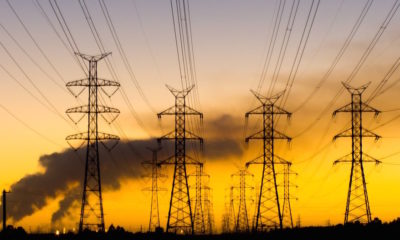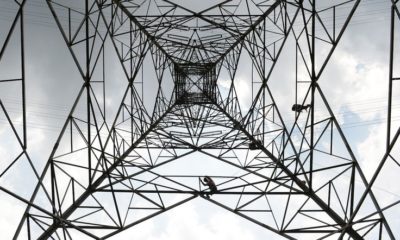- Deregulate Power Sector, Don Urges FG
A Professor of Economics, Sheriffdeen Tella, has called on the Federal Government to deregulate the power sector as opposed to the current privatisation regime in the sector.
He made this call on Wednesday while fielding questions when he featured at The PUNCH Forum held at the PUNCH Place, Magboro, Ogun State.
The don likened the current regime of privatisation as “just putting money in some people’s hands.”
The sector was privatised by the President Goodluck Jonathan administration with 11 electricity distribution companies and six generation companies handed over to core investors on November 1, 2013.
The Transmission Company of Nigeria, which manages the national grid, is still fully owned and operated by the government.
On July 2015, the Federal Government took over Yola Electricity Distribution Company following the exit of the core investor.
Tella advised that by deregulating the power sector just as it did in the telecommunications sector, private investors would be able to generate power and sell to whoever could buy it.
He said, “The government should deregulate the power sector, just like it did with the telecommunications sector. Individuals should be allowed to generate power and distribute to the people and industries. The current privatisation is just like putting money in some people’s hands.”
The don, who is a former Vice-Chancellor of the Crescent University, Abeokuta, equally attributed the slow pace of economic development in the country to a lack of long-term national plan by successive administrations.
The don, who further noted that skewed federalism being operated in the country had denied it economic prosperity and progress, added that though past administrations had come up with one plan or the other, they had not really made any meaningful and enduring impact on the nation and Nigerians.
He said, “We have had governments both military and civilians that came up with different plans viz Vision 2010, Vision 20: 2020, NEEDS (National Economic Empowerment and Development Strategy), 7-Point Agenda, and Transformation Agenda, among others. They did not endure and each fizzled out after each administration. What we need is a long-term national plan.
“There is a report that by 2050, Nigeria’s current population will double. What are the plans we are making to address this? I don’t think there is anything on the ground in terms of a national plan.
“We have to have a long- term prospect of the economy. By this, I mean there must be a national plan and a state plan to direct the nation’s economic and political lives.”
He said that a nation that enjoyed economic prosperity must have “an economy where employment opportunities are available, national income and per capita income are rising, inflation is low, goods are available due to growing domestic production, people are taking holiday abroad, social amenities for young and old are of good quality and affordable, and life expectancy is high.”
Listing other barriers to the nation’s growth and economic prosperity, he noted that these included the political structure of the country, insincerity of politicians, and political expediency over economic judgement.
Tella, who is of the Department of Economics, Olabisi Onabanjo University, Ago Iwoye, Ogun State, said for Nigeria to experience industrial development, it must invest massively in education.
He said, “Massive qualitative education is necessary for economic prosperity. When people are educated they become creative. When one is educated, he knows he has to have a number of children he can cater for.”
Tella, also noted that industries needed a constant power supply to produce optimally.
Tella, who added that the nation’s democracy was maturing, however, called on the media and the elite to act as checks on the excesses of the politicians.
He said, “The elite and the media must insist on accountability, fairness and justice. The elite must get out of their comfort zone and fight for the poor for the benefit of Nigeria.”

 Billionaire Watch2 weeks ago
Billionaire Watch2 weeks ago
 Startups4 weeks ago
Startups4 weeks ago
 News4 weeks ago
News4 weeks ago
 News4 weeks ago
News4 weeks ago
 Bitcoin4 weeks ago
Bitcoin4 weeks ago
 Naira4 weeks ago
Naira4 weeks ago
 Forex3 weeks ago
Forex3 weeks ago
 Treasury Bills4 weeks ago
Treasury Bills4 weeks ago

























